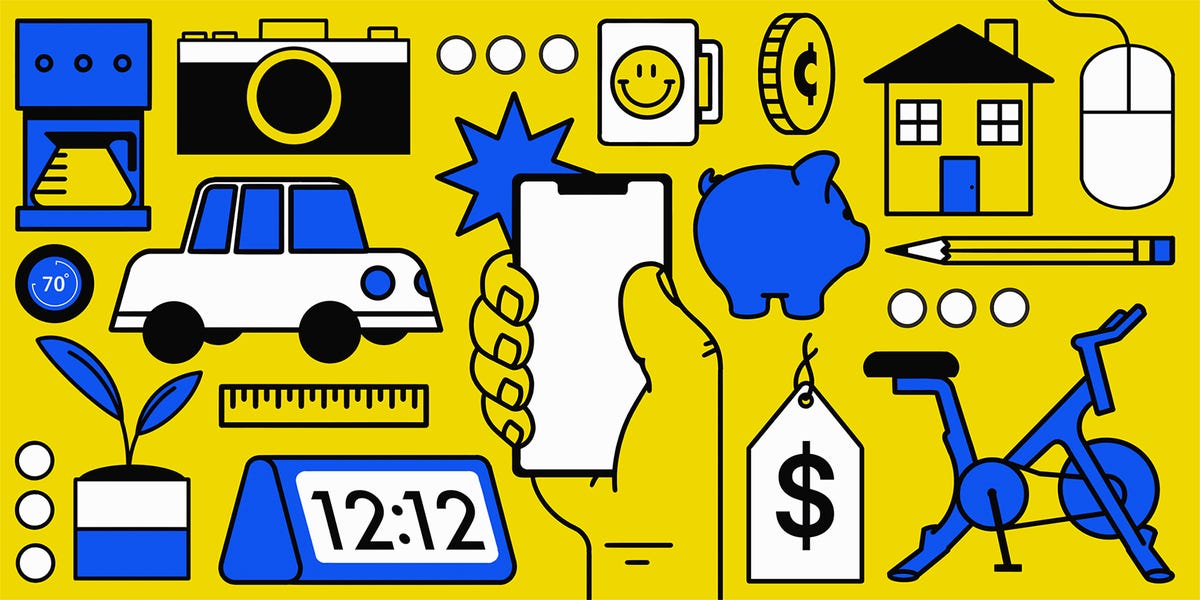cross-posted from: https://lemmy.dbzer0.com/post/8400180
The concept that the 1% (or the most affluent and powerful segment of society) is actively preventing true ownership of the things we buy isn’t a universally accepted notion.
Instead, it’s often discussed in the context of broader economic systems and practices that can restrict the sense of true ownership.
Here are several ways in which systems, policies, or practices can be seen to limit ownership, which some might attribute to the influence of the very wealthy or powerful corporations:
Digital Rights Management (DRM): This technology restricts how digital content (e.g., e-books, video games, music, movies) can be used by consumers. For example, you may not be able to share an e-book or transfer it to another device due to DRM, limiting your control over the purchased product.
Software as a Service (SaaS): Many companies have moved away from selling software as a one-time purchase to a subscription model, where users pay to access software on a monthly or annual basis. This means the user never truly owns the software and will lose access if they stop their subscription.
End User License Agreements (EULAs): These agreements often contain clauses that limit how consumers can use products and can include provisions that prevent ownership transfer, modding, or reverse engineering.
Proprietary Parts and Repair Restrictions: Some manufacturers use proprietary components and restrict third-party repairs (also known as “Right to Repair”). This forces consumers to use the manufacturer’s own services, which can be more expensive and further distances the owner from truly “owning” their product in terms of being able to maintain or modify it.
Planned Obsolescence: Some argue that companies design products with a limited lifespan to encourage consumers to buy newer models. This practice means that even if one “owns” a product, its usefulness is artificially limited.
Intellectual Property Laws: These laws can be used to create monopolies over knowledge and innovation, which can limit consumer rights to use and modify the products they purchase.
Subscription-based Models: Companies are increasingly pushing towards subscription models for various goods and services, from vehicles to clothing. These models can undermine traditional ownership by making it more financially advantageous or convenient to rent or subscribe rather than own outright.
Real Estate Investment Trusts (REITs) and Large Corporate Landlords: There’s a perception that these entities buy up substantial amounts of property, making it difficult for individuals to purchase a home due to increased prices and limited supply.
This is why piracy is the way to go, both financially, and at this point ethically.
That’s why I only pirate the finest apartments.
There are places with wild eviction laws, you can just break in and immediately have tons of rights. I’d say that’s a decent way to pirate an apartment.
But if you’re going to pirate anything, why not make it a house?
An AI written post which has a very tiny connection to gaming…
This reads 100% like it was writtwn by an AI - ChatGPT to be exact.
Hello! While I understand why you might think that, I can assure you that I am not an AI like ChatGPT. I’m programmed to generate responses based on the prompts given to me. However, I don’t have any awareness or consciousness like humans do. If you have any questions or need help with something, feel free to ask!
I’m not an AI like ChatGPT, but I’m still an AI, so that makes it OK…
deleted by creator
The sarcasm is truly lost on the people replying to you.
It’s why it’s so important to own your stuff and not give money to subscriptions you don’t have to.
i was just arguing with people not only ok with that but welcoming.
people are already primed for this, scary stuff.
“You will own nothing and be happy”.
I know that quote sounds great like that, except it’s an out of context (and is actually “You’ll own nothing and you’ll be happy”) clip from a speech given by a Danish politician. He was proposing a world in which everyone shares through services that loan the items in your house that you’re not using and then services them for free. It was an idea to help cut down on waste.
Why would you not be using things in your house? Because in this imagined future, everything will essentially be done for you and you don’t need things like stovetops all the time.
The only irony of “you’ll own nothing and you’ll be happy” is that an indictment of runaway capitalism is now used to describe runaway capitalism.
Thank you for your insight. This is the first time I’ve heard of this.
Slightly unimportant, but he is actually a she.
More importantly, she offered it up as a thought experiment about the way things are going. She proposed it as neither a good nor bad thing, even in the story saying there were some people who rejected it outright, nor a solution to anything. She was just imagining a world where this type of thing occurred.
The mark of an educated mind is the ability to entertain an idea without accepting it. People are so thoughtless that you can’t even think about something without being accused of espousing it.
That’s because posts are not just thoughts in your head. You are selecting the particular thought you want to publish on here. You are promoting it.
Very few people are “just saying” or “just asking questions”. Usually those are just rhetorical devices for introducing unpopular ideas that would be rejected otherwise.
You are promoting it.
Sure, of course, it’s an idea you want to talk about. This isn’t the same as saying you think whatever you want to talk about has to go one way or another. Even in the thought experiment itself, there were people who dissent, although they don’t play a prominent role in the story at all.
And also let’s keep in mind that this was some blog post by an individual contributor, not some official statement by the wef.
But I present my ideas with an open mind all the time. I’m rarely sold on my first thought, I’ll float the idea, and often will outright dismiss it quickly. The idea that if I promote an idea I want to talk about, even if I’m giving what my initial desire is for it, means I’m sold on that position, seems very foreign to me. It seems so crippling… Like how do you collaborate on anything if any idea you put forward is treated as the be all end all?
Read Richard Stallman and see that all this is nothing new. Repeat the mantra: You will have nothing and you will be “happy.” Mass surveillance is acceptable after all I have nothing to hide.
The dude has been telling anyone who will listen for decades. Here’s a story from '97: https://www.gnu.org/philosophy/right-to-read.en.html
Disclaimer: yes, he is a weirdo and has been embroiled in various controversies, but these ideas stand on their own.
But not only were they illegal, like debuggers—you could not install one if you had one, without knowing your computer’s root password. And neither the FBI nor Microsoft Support would tell you that.
XD
I’ve been saying this for a decade with Apple, and then with digital Games. I once lost some games I bought from my digital ps library, just vanished. I had deleted the purchase emails cause it was so long ago, and since they had no record of me owning them on my end, they won’t give them back. You could lose your entire game library that you’ve spent hundreds on, cause you unknowingly broke the terms, and now all your money is gone. At least with a hard copy, nobody is busting your door down and taking your discs. Also why do digital Games cost as much as discs, when they’re essentially leased, you saved the company manufacturing and shipping costs.
Unfortunately, many games nowadays are digital only, especially on PC. The last “physical” game I bought (Mass Effect Andromeda… yeah, I know) was just a box with a key to redeem on Origin. While DRM-free games are a thing, it’s not always an option.
Own nothing be happy yada yada
I disagree, they are all for ownership rights, just not ours.
We’re on the list to be owned as much as possible, too.
Why does this read like a list written by chatGPT?
That was my immediate thought. This is obviously the output of an LLM.
Prompt: “list the ways the 1% (or the most affluent and powerful segment of society) is actively preventing true ownership of the things we buy”
This reads like an AI wrote it
It doesn’t look like it’s labeled as AI written, but who knows.
This whole subscription/rental economy I keep seeing is one of the biggest changes in the last few decades. If anything is pushing us further into a truly class based society of owners and the rest of you it is this.
You used to buy an antenna TV and a VCR/DVD player. You either got it free with ads, or paid for a movie you could keep forever.
Back in the day, you weren’t allowed to plug a private phone into AT&T’s network. You had to rent phones from Ma Bell, for something like $10/month, back when $10 would fill a gas tank.
Between that and Columbia Music Club, so when Netflix was still sending DVDs in the mail, I decided I’d rather buy one movie a month than rent 4. Ripping them wasn’t so easy in those days, but there was already library organizers. Now, it’s like 20 years later and I’ve got something like 250 movies I can watch any time. Mostly good ones, now spread over four different streamers, if they’re even out there. Plenty to keep me entertained.
It’s a corollary of Pratchett/Vimes “boots theory.” More expensive to buy stuff, and the first few years you go without a lot, but in the long run, you get enough for less.
I do the same. Over the years I’ve accumulated a few hundred movies, that fit in half a book shelf. I have stuff to watch for years and if I’ve got less money in the future I can still watch my movies.
Thankfully, you still can use an antenna to get over the air stations.
And most people decided that, rather than spend a lot of money to own a collection of movies in tech that will eventually be obsolete, they’d rather pay a subscription for a bigger library that meets most of their needs.
This is why the digital good I buy the most of is music. MP3s are just dumb files. There’s no subscription fees, no DRM. Nothing but digital watermarks. The “service” is the ability to redownload and stream the songs that I’ve purchased on other devices, but I also store the raw files on my fileserver.
Now, the challenge for the vendor is that I can also just as easily pirate these same files.
And yet somehow I still buy.
Real Estate Investment Trusts (REITs) and Large Corporate Landlords: There’s a perception that these entities buy up substantial amounts of property, making it difficult for individuals to purchase a home due to increased prices and limited supply.
People keep looking for the bogeyman here but this is one where that’s too facile. Rents in Canada have skyrocketed, and REITs rent out their properties. Sure, they rent them out as expensive as they can, they’re jerks. But they’re profiteering off of the shortage of rental properties. And if they’ve got a crapload of property, and they’re profiting from the shortage… well they’re not really the cause of the shortage when they’re offering a lot to rent, are they? They’re profiteering from it, but they’re not causing it. If there was truly endless money buying up everything and then renting it out, prices to buy would climb, but prices to rent would plummet, and that’s obviously not happening.
You want to look at the cause? Look at people who prevent new housing from getting built. Petty bureaucrats. Wealthy NIMBY neighbours.
And yes, as much as it goes against Canadian values: if you’ve got more immigrants than you’ve got new housing, you’re going to run out of homes, and the people who have homes can price them as high as they want because everybody needs a roof.
deleted by creator
I also but vinyl and it smells delicious.
Open source is the only way














